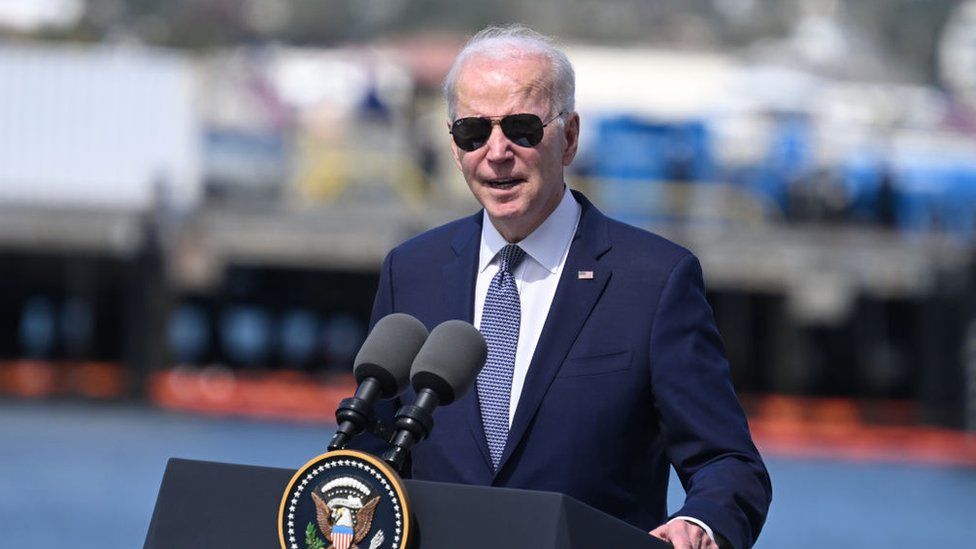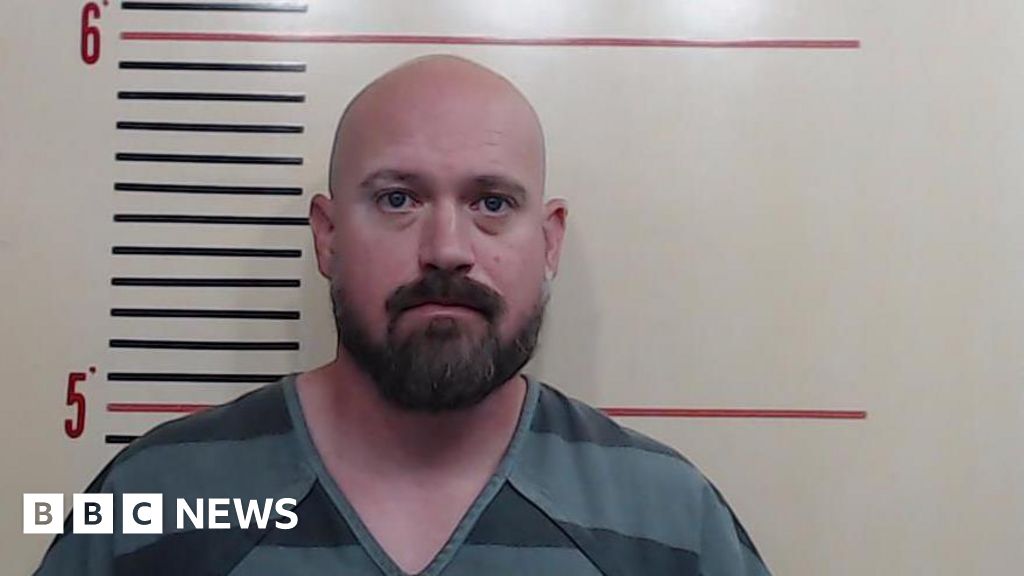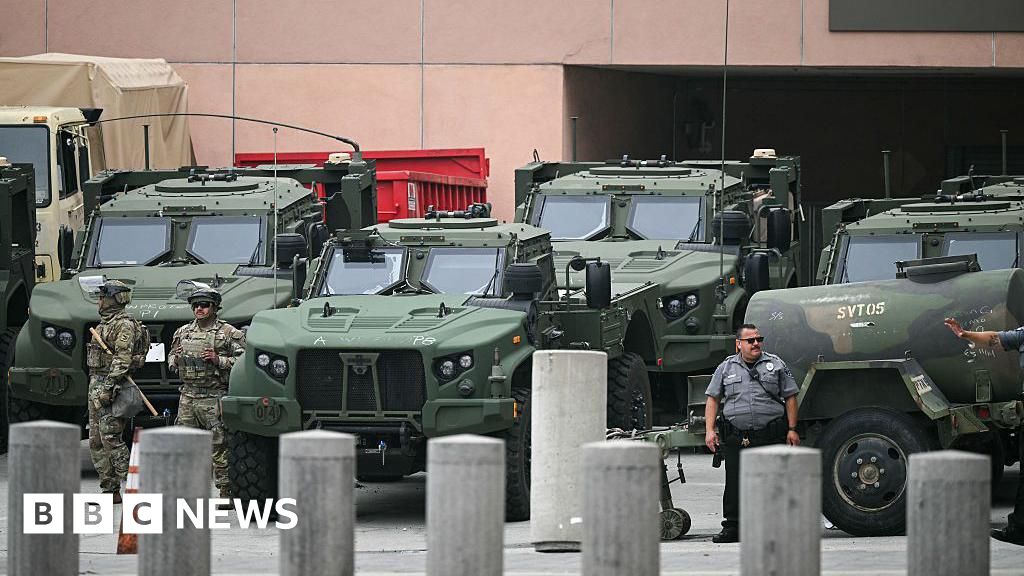ARTICLE AD BOX
 Image source, Getty Images
Image source, Getty Images
By Sam Cabral
BBC News, Washington
US President Joe Biden is set to issue an executive order that aims to increase the number of background checks conducted before firearm sales.
It aims to move the US "as close to universal background checks as possible without additional legislation".
The Democratic president will sign the measure during a visit Tuesday to Monterey Park, California, where a gunman killed 11 people in January.
Action on gun control appears unlikely in a divided Washington.
Last year, Mr Biden signed a cross-party gun violence reduction measure into law and he has repeatedly asked Congress to do more about what he calls an "epidemic".
But his call for an assault weapons ban, universal background checks on gun sales and repealing gun manufacturers' immunity from prosecution are unlikely to make headway while Republicans control the US House of Representatives.
Mr Biden's executive order - a law a US president can enact without Congress - acknowledges this political reality and lays out a series of actions within his authority.
It calls for a proposal on how the federal government can meet the short and long-term needs of a community impacted by mass shootings, similar to how authorities respond to natural disasters.
The order also aims to crack down on gun sellers who break the law.
Mr Biden will direct the US attorney general to clarify the statutory definition of who is "engaged in the business" of dealing in firearms, to devise a plan that prevents firearms dealers whose licenses were revoked from continuing to sell, and to name and shame firearms dealers who are breaking the law.
Separately, the measure asks the Federal Trade Commission to issue a report on how gun manufacturers target civilians, especially minors.
It also aims to reduce the theft or loss of firearms during shipment between dealers, and mandate better reporting of ballistics data so law enforcement can match shell casings to the guns from which they were fired.
The order includes a call for raising public awareness over "red flag" laws, also known as extreme risk protection orders. Signed in 19 states and the District of Columbia, these laws allow individuals to petition a court to temporarily confiscate guns from people with potentially violent or harmful behaviour.
Last month, the Justice Department sent out more than $200m to help states administer their red flag laws.

 2 years ago
43
2 years ago
43








 English (US) ·
English (US) ·